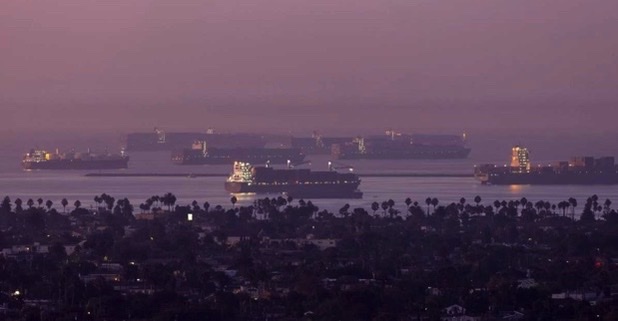13 October, 2021
It’s fair to say global supply chains are in a state of chaos.
In recent days we’ve seen staggering images of a record-breaking number of ships, carrying hundreds of thousands of containers, anchored off the California coast.
Off the Shanghai and Ningbo ports in China (the world’s two largest ports) there are reports of over 200 container ships waiting for a berth.
In Europe, truck driver shortages are crippling businesses.
It’s global gridlock like we’ve never seen before, and the impacts are being felt by businesses and consumers far and wide.
So, for this briefing we thought there’s no better person to break down the situation, than Graham Hay – Antipodes Portfolio Manager, with coverage of global hardware, industrial and commodities stocks.

You may remember, earlier this year Graham spoke about the supply chains issues in the semiconductor industry on our Good Value podcast.
We put three questions to Graham on the current situation.
Q. What are the main causes of the global supply chain chaos that we’re currently seeing?
Today’s supply chain issues, which span everything from container shipping, thermal coal, semiconductors, not to mention the real impact of labour immobility across a wide range of industries clearly stem from the after-effects of COVID, combined with the enormous stimulus that governments have put into the economy over the past 18 months.
We’ve seen that overall consumer spending, despite the global economy tipping into recession last year, has been very strong – consumers have reallocated budgets away from services (which have been largely off limits) to physical goods. These impacts have been further exaggerated in 2021 by the rapid spread of the COVID-19 Delta variant which, over and above the initial lockdowns of 2020, spilled over into a broad range of industries.
Today’s supply chain issues by and large stem from prior underinvestment combined with a rapid snap back in demand.
Q. Do you think there’s relief in sight, or will these issues linger?
This varies between industries. For instance, in the energy and mining sectors, where we see rapid increases in coal, natural gas and oil prices, the willingness of markets to fund expansion investment in these naturally depleting industries is very different from what it was 5 years ago. ESG and climate concerns are impacting upstream investment, driving significant inflation in energy costs (observed most acutely in Europe, and in power rationing in China to deal with rapidly inflating coal prices). There is no shortage of underlying resources, however the ability and cost of bringing this to market has been altered by changing policy and consumer preferences.
In areas such as semiconductors, near term supply will continue to remain constrained, however there is significant new investment that will eventually address supply issues. It is likely that a combination of normalisation of demand and added supply will eventually provide relief.
While consumer balance sheets are strong today, we need to be conscious of the impact that higher energy costs will have on consumers’ ability and willingness to spend at the levels of the past 12 months – in other words we may simply be overestimating demand as we move into 2022.
Q. When it comes to global equities and supply chains, what do you think are the biggest considerations investors must keep in mind?
The contortions that have occurred owing to the pandemic and policy may have drastically skewed economic and company data over the past 2 years.
As an investor, one must consider what “normal” really looks like as both policy settings and supply chain challenges eventually ease. When it comes to stocks, setting expectations around “normalised” earnings will be key as we emerge out of this highly unusual time in global markets.

